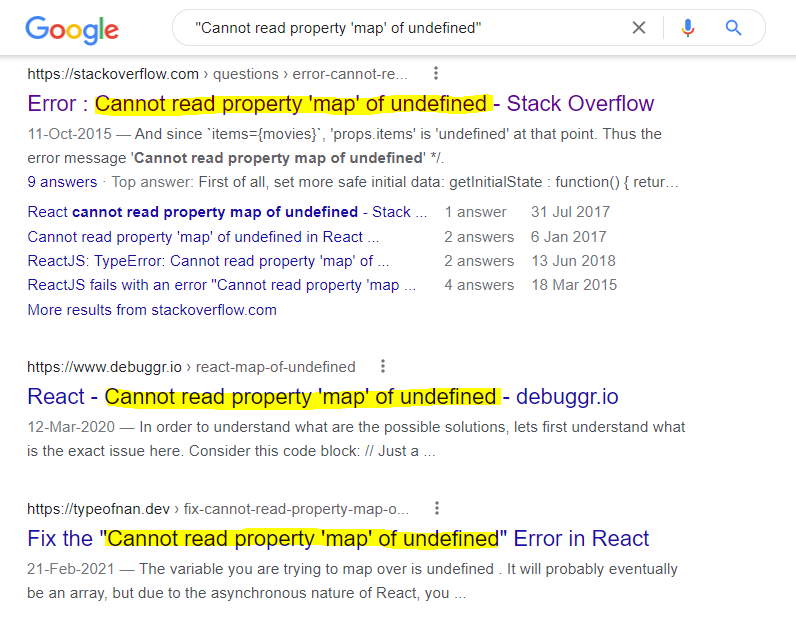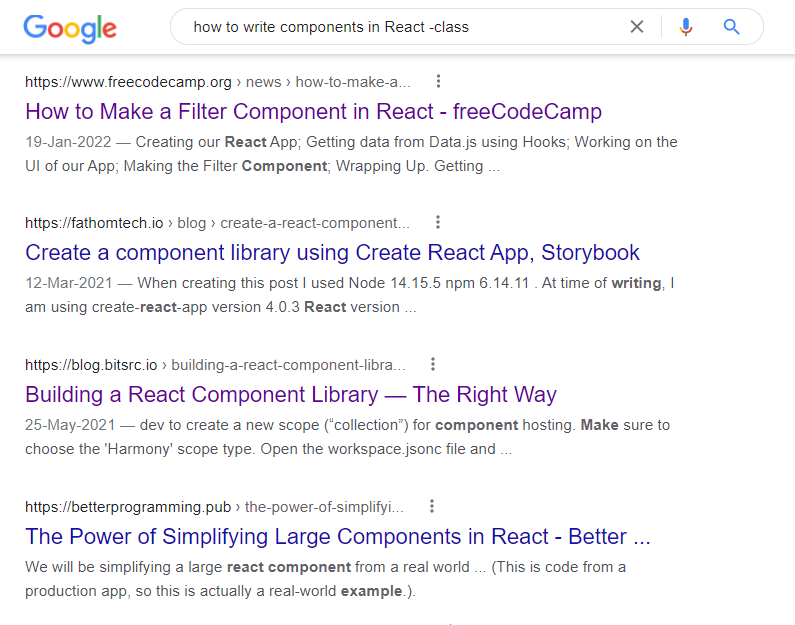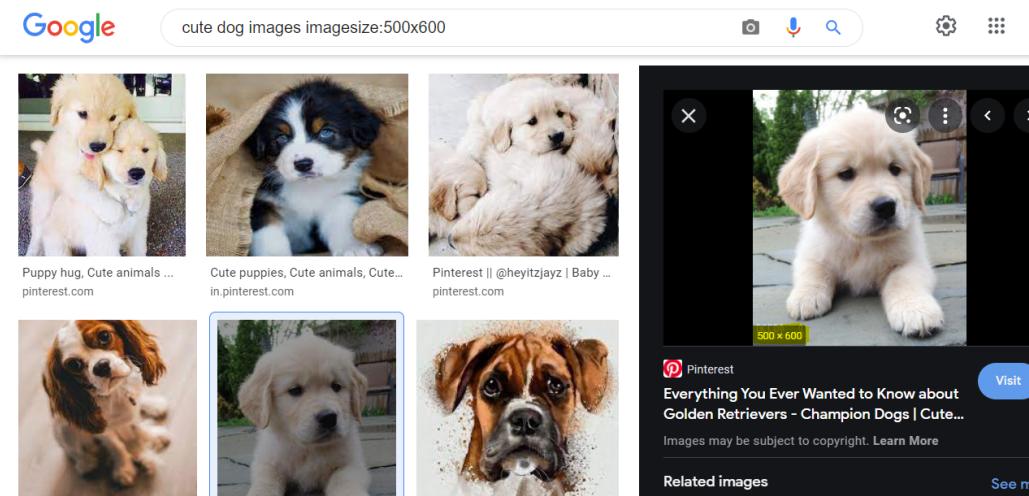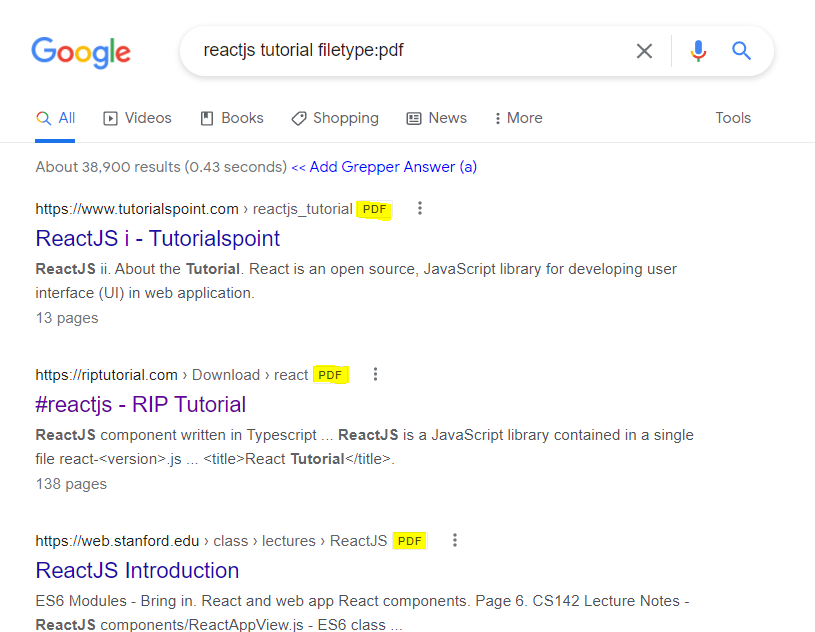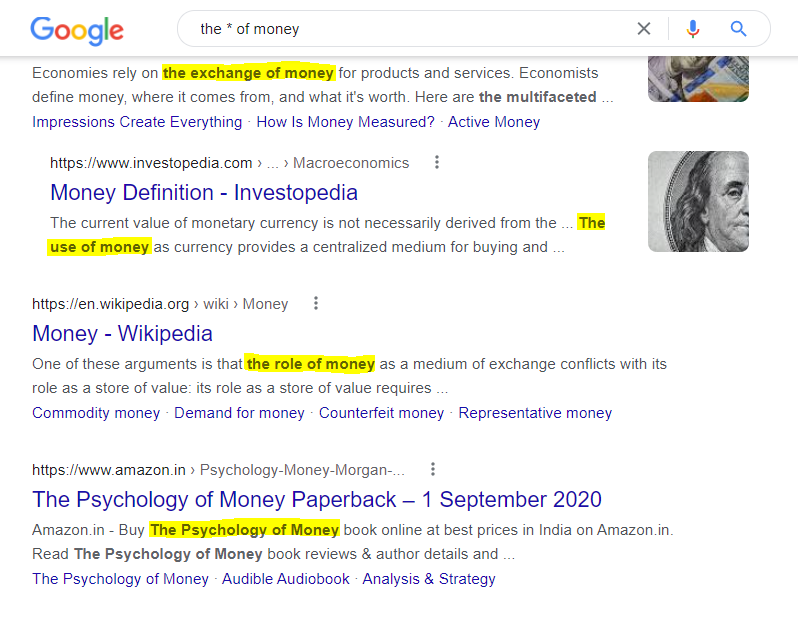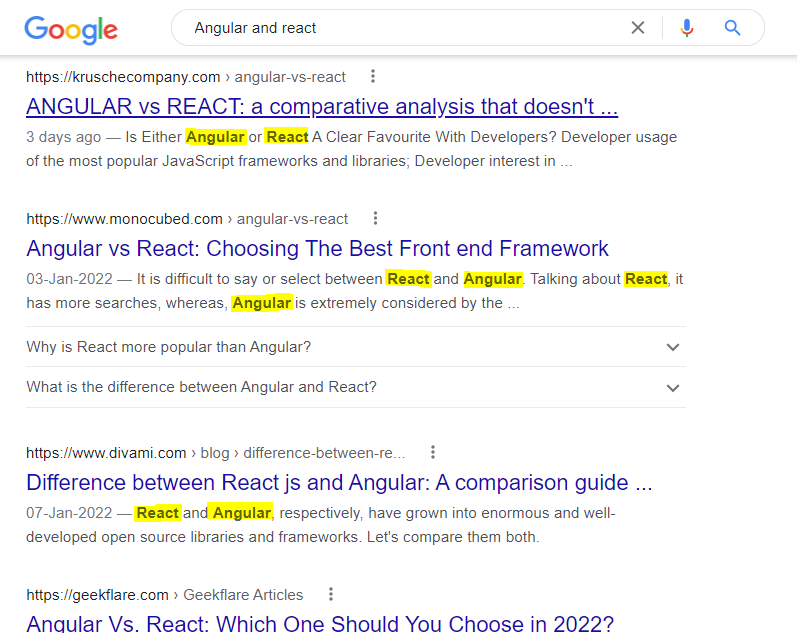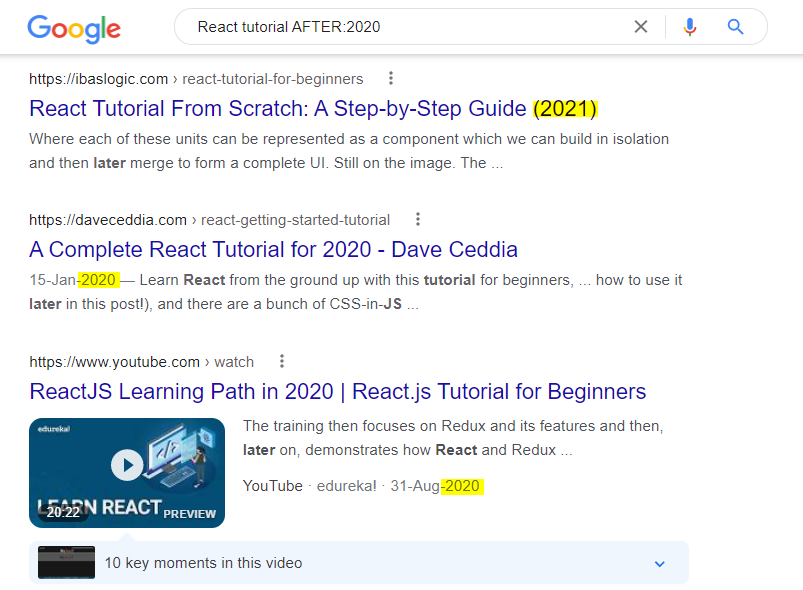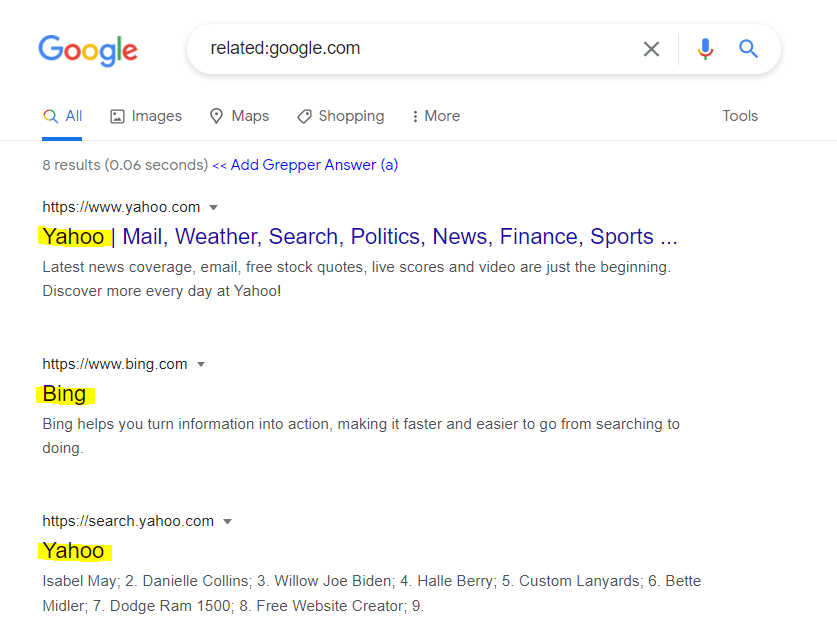Pretty much everything is available on the internet, and Google is one of the main ways people search for information.
And while you might think it’s obvious, many internet users don’t know how to use Google search efficiently and effectively.
In truth, Googling is an art.
To get the right answers, you need to ask the right questions. And to get the right answers quickly, you must know how to ask the right questions.
Everyone should learn the how part, and that’s what this tutorial is all about. Below are some helpful tips and tricks you can use to find correct answers to your questions effectively and efficiently.
Table of Contents
Open Table of Contents
-
How to Search Google Effectively
- 1. Use quotes to get an “EXACT” match
- 2. Search within a specific site with
site: - 3. Exclude a term from search results with
- - 4. Search images of a particular size with
imagesize: - 5. Search for a particular filetype with
filetype: - 6. Use wildcard
*to make searches - 7. Combine searches with
OR,ANDlogic - 8. Filter out searches with
AFTER:,BEFORE:or..between two numbers - 9. Check out related websites using
related:
How to Search Google Effectively
1. Use quotes to get an “EXACT” match
Generally, when we do a regular search on Google, it makes a shallow search. This may result in pages that may or may not contain all the words you mentioned in your search query.
But if you wrap your search query or question (either a term or a phrase) in quotes like this: "your question goes here" then Google will do a deep search. This means that all the results will include pages that contain all the terms in your question that you put within quotes.
This is helpful when you absolutely want a particular term or phrase to be there in your search results.
2. Search within a specific site with site:
If you want Google to return results from within a particular website, just add site: before the question you are searching.
This is also helpful when you want to search for something within a website that doesn’t have an internal search option or perhaps doesn’t have a very effective one.
For example, searching for site:reddit.com react will populate search results only from the www.reddit.com website on the topic of React.

3. Exclude a term from search results with -
If you don’t want a term or phrase to appear in your search results, then just add - in front of that word.
For e.g. a search on => how to write components in React -class will return all the search results that don’t have the term “class” in them. So, (if you know a bit of React) it’ll give you only ways to write functional components in React.
4. Search images of a particular size with imagesize:
If you want to search images of a particular size, then use the tag imagesize: in your search query along with the width and height in pixels.
Dimension should be in pixels only – for example, imagesize:500x500 will populate image results which have a dimension of 500px x 500px. So a search on => “cute dog images imagesize:500x600” (coz why not) will result in pictures of cute dogs with an image size of 500px x 600px.
5. Search for a particular filetype with filetype:
If you want to get search results that contain a particular file type such as PDF or PPT, then add filetype:<extension> (without the angular brackets). For example, react tutorial filetype:pdf will generate results that contains PDF in them, as seen in the following image:
6. Use wildcard * to make searches
If you are unsure about or have forgotten any term in your search query/ question, then use the wildcard * charachter. Google will replace it for you with relevant terms.
For example, a search on the * of money will populate the following results. It will be a bunch of pages that include the phrase such as “the exchange of money”, “the use of money”, “the role of money”, “the psychology of money”, and so on.
7. Combine searches with OR, AND logic
If you want your search results to contain two terms, then put the AND keyword in between them. For example, the search on React AND Angular will fetch results that have both the terms react and angular in it.
Similarly, if you want either of the terms in your search results, then use the OR keyword in between them. For example, the search on React OR Angular will fetch results that have either of the terms or even both.
8. Filter out searches with AFTER:, BEFORE: or .. between two numbers
If you want Google to populate search results that were published after a particular year, then use the tag AFTER:. For example, the search on React tutorials AFTER:2020 will populate search results published after 2020.
Similarly adding the tag BEFORE: will return results published before a particular year.
You can also search for results published in a certain year range, or for that matter between any numbers. Just add .. between the two numbers you want to search between along with the units, if any.
9. Check out related websites using related:
If you want to know what all other websites are available on the internet that are similar to a particular website, then use the related:tag.
For example, a search on related:google.comm will fetch all the websites that are similar to Google like Bing, Yahoo, DuckDuckGo, and so on.
Wrapping Up
Thanks for reading! I really hope you enjoyed reading this short article about how to google efficeiently and effectively and found this tutorial useful.
Do consider sharing it with your friends – I’d really appreciate that. Follow me on LinkedIn and Twitter and stay tuned for more amazing content! Peace out! 🖖
